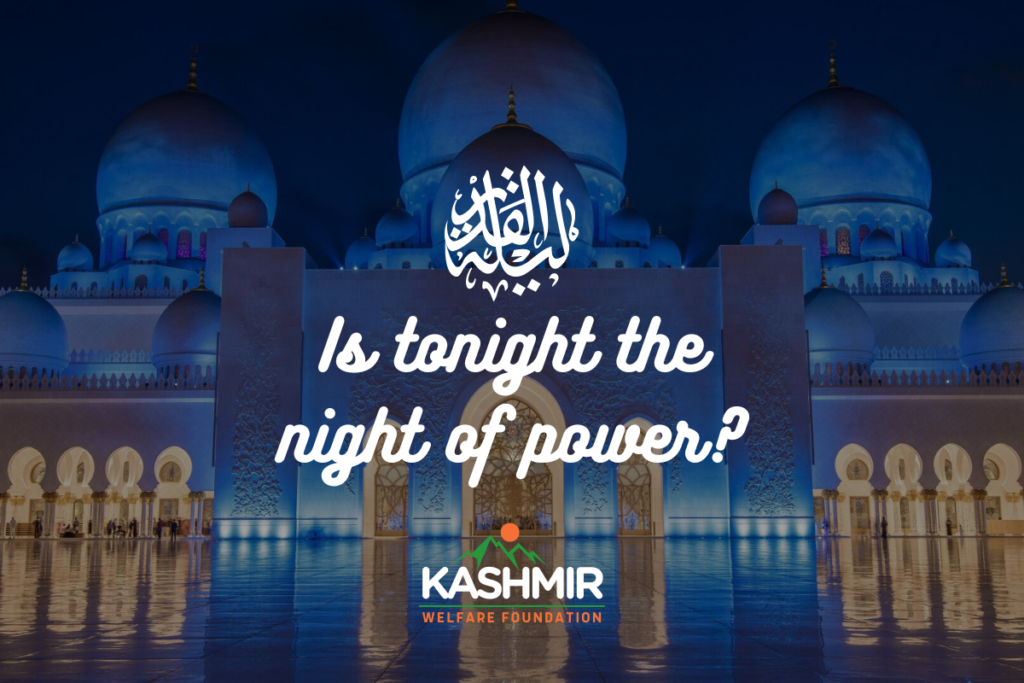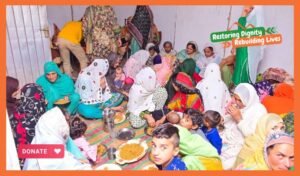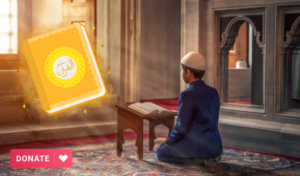
During this sacred month, Muslims are encouraged to engage in acts of charity and kindness, as well as to practice self-discipline and self-control. The fasting itself is seen as a means of purifying the soul and developing empathy for those who are less fortunate. By experiencing hunger and thirst, Muslims are reminded of the blessings they have and are encouraged to be grateful for them.
Moreover, Ramadan is a time for Muslims to seek forgiveness and to seek repentance for their past sins. It is believed that during this month, the gates of heaven are open and the gates of hell are closed, making it the perfect opportunity for individuals to seek forgiveness from Allah (SWT) and to make amends for any wrongdoings.
Additionally, Ramadan is a time for Muslims to strengthen their community bonds. Families come together to break their fasts, known as iftars, and mosques are filled with worshippers attending special nightly prayers called Taraweeh. The sense of unity and togetherness is palpable, as people from different backgrounds and walks of life gather to worship and celebrate their faith.
Furthermore, Ramadan is a time for Muslims to increase their recitation and study of the Quran. Many Muslims aim to complete the entire Quran during this month, either individually or in congregation. The Quran is seen as a source of guidance and enlightenment, and its importance is emphasised during Ramadan.
Lastly, Ramadan is a time for Muslims to reflect on their own spirituality and strive for self-improvement. It is a month of introspection, where individuals evaluate their actions and behaviors and seek to make positive changes in their lives. Muslims are encouraged to engage in acts of kindness, patience, and forgiveness, and to avoid negative habits and behaviors.
Ramadan holds great significance for Muslims around the world. It is a time of spiritual growth, self-reflection, and devotion. Through fasting, prayer, acts of charity, and increased devotion to Allah (SWT), Muslims aim to strengthen their faith and improve themselves as individuals. It is a month of immense blessings and rewards, and it is eagerly awaited by Muslims each year.
During the last 10 nights of Ramadan, Muslims around the world engage in intensified worship and seek to maximise their spiritual connection with Allah (SWT). These nights are believed to be the most blessed and spiritually potent nights of the entire year. The Night of Power, in particular, holds immense significance as it is believed to be the night when the first verses of the Qur’an were revealed to the Prophet Muhammad (peace be upon him).
Laylat-al-Qadr is a night that is shrouded in mystery and awe. Its exact date is unknown, but it is most commonly believed to fall on one of the odd nights of the last 10 nights of Ramadan, such as the 21st, 23rd, 25th, 27th, or 29th night. Muslims devote themselves to acts of worship such as reciting the Qur’an, engaging in prolonged prayers, making supplications, and seeking forgiveness from Allah (SWT) during this sacred night.
The Night of Power is considered to be more valuable than a thousand months of worship, as mentioned in the Qur’an: “The Night of Power is better than a thousand months.” [Al-Qadr 97:3]
During this night, the mercy and blessings of Allah (SWT) are said to be abundant, and sincere prayers made on this night are believed to be more likely to be answered. Many Muslims spend the entire night in prayer and reflection, seeking to attain a deeper connection with Allah (SWT) and to seek forgiveness for their sins.
It is recommended to engage in acts of worship throughout the last 10 nights of Ramadan, but particularly on the Night of Power. Muslims strive to perform acts of charity, engage in remembrance of Allah (SWT), and seek His forgiveness. They also recite specific supplications and engage in the recitation of the Qur’an, with the hope of attaining the immense rewards associated with this blessed night.
While the exact nature and significance of the Night of Power may remain a mystery, Muslims approach it with utmost reverence and devotion. They understand that this night is a unique opportunity to draw closer to Allah (SWT) and to seek His forgiveness and blessings. Through their acts of worship and devotion, they hope to attain spiritual enlightenment and purification, and to strengthen their relationship with their Creator.
During Laylat-al-Qadr, Muslims engage in various acts of worship and devotion to seek the blessings and forgiveness of Allah (SWT). Many believers spend the entire night in prayer, reciting the Qur’an, and making supplications. The atmosphere is often filled with a sense of tranquility and spirituality as individuals strive to connect with their Creator on this auspicious night.
In addition to the spiritual significance, Laylat-al-Qadr also serves as a time of reflection and self-evaluation for Muslims. It is a moment to ponder upon one’s actions and seek forgiveness for any wrongdoings committed throughout the year. Many Muslims take this opportunity to engage in acts of charity and kindness, seeking to purify their hearts and seek the mercy of Allah (SWT).

Anonymous
Parveen Kausar
On behalf of shahraz, latif
Parveen kausar
Tareen Kausar
Tareen Kausar
Tareen Kausar

Anonymous
Ain Mirza

Anonymous
Qamar Bashir
Ihsaan Ameen

Anonymous
Furthermore, the Night of Power is a time for believers to strengthen their relationship with the Qur’an. Muslims recite and reflect upon the verses of the Holy Book, seeking guidance and enlightenment. It is a night where the words of Allah (SWT) hold a special significance, as they were first revealed on this blessed night.
Throughout history, there have been numerous reports of extraordinary experiences and blessings associated with Laylat-al-Qadr. Many individuals have testified to witnessing angelic presence and experiencing a profound sense of peace and serenity during this night. It is believed that the gates of heaven are open, and prayers are readily accepted during this time.
While the exact date of Laylat-al-Qadr remains unknown, Muslims are encouraged to seek it out in the last 10 nights of Ramadan. This period is known as the “Ashra of Forgiveness,” and it is a time when believers intensify their worship and supplications. The Prophet Muhammad (pbuh) himself would seclude himself in the mosque during these nights, devoting himself entirely to the worship of Allah (SWT).
Overall, Laylat-al-Qadr is a night of immense significance and blessings for Muslims. It is a time for spiritual reflection, devotion, and seeking the mercy of Allah (SWT). Believers strive to make the most of this night, recognising its immense value and the opportunity it presents for spiritual growth and purification.
What to Do on Laylat-al-Qadr
Charity is highly encouraged on the Night of Power. It is a night where the rewards of good deeds are multiplied. The deeds performed on this night are better than those accomplished in a thousand months. It is important not to miss the rewards of giving on Laylat-al-Qadr and donate to Muslim Aid today.
Allah (SWT) says in the Qur’an, “We have sent it (this Qur’an) down in the Night of Qadr. And what may let you know what the Night of Qadr is. The Night of Qadr is much better than one thousand months. The angels and the Spirit (Jibril) descend in it, with the leave of your Lord, along with every command. Peace it is till the debut of dawn.” [Al-Qadr 1-5]
On the Night of Power, Muslims are encouraged to engage in various acts of worship and devotion. One of the most important things to do on this blessed night is to perform extra prayers, particularly the Taraweeh prayer. This special prayer is performed after the Isha prayer and consists of a series of additional units of prayer. Many mosques hold congregational Taraweeh prayers, providing an opportunity for Muslims to gather and worship together.
In addition to the Taraweeh prayer, reciting the Qur’an is highly recommended on Laylat-al-Qadr. Muslims are encouraged to spend the night in deep reflection and contemplation, immersing themselves in the words of Allah. This is a time to seek guidance, forgiveness, and spiritual rejuvenation. Many Muslims choose to recite the entire Qur’an or specific chapters and verses that hold special significance to them.
Another important act of worship on the Night of Power is making du’a (supplication). Muslims are encouraged to pour out their hearts to Allah, seeking His mercy, forgiveness, and blessings. This is a time to ask for guidance, success, and protection. It is also a time to pray for the well-being of loved ones, the Muslim Ummah, and the entire world. Muslims believe that their prayers on this night have a greater chance of being accepted.
In addition to prayers and recitation of the Qur’an, engaging in acts of charity is highly recommended on Laylat-al-Qadr. This is a night of immense blessings, and giving in charity is a way to share those blessings with others. Muslims are encouraged to donate to charitable organisations, sponsor orphaned children, provide food and aid to the needy, and support causes that promote justice and equality. By giving generously on this night, Muslims not only fulfill their religious obligations but also contribute to the betterment of society.
Finally, it is important to remember that the exact date of Laylat-al-Qadr is unknown. It is believed to fall on one of the odd-numbered nights in the last ten days of Ramadan. Muslims are encouraged to seek out this blessed night by increasing their acts of worship and devotion during this time. By doing so, they maximise their chances of experiencing the profound spiritual blessings and rewards that Laylat-al-Qadr offers.
When is Laylat-al-Qadr 2024?
The Night of Power, also known as Laylat-al-Qadr, is one of the most significant nights in the Islamic calendar. It occurs in the last 10 odd nights of Ramadan, the holy month of fasting. Muslims around the world eagerly await this blessed night, as it is believed to be a night of immense blessings and mercy from Allah.
According to the teachings of the Prophet Muhammad (pbuh), believers are encouraged to seek Laylat-al-Qadr in the odd-numbered nights of the last ten nights of Ramadan. The odd-numbered nights, such as the 21st, 23rd, 25th, 27th, and 29th nights, are considered to have a higher likelihood of being the Night of Power. However, it is important to note that the exact date of Laylat-al-Qadr is not known with certainty.
Traditionally, the 27th night of Ramadan is considered the most likely night for Laylat-al-Qadr. This belief is based on various narrations and hadiths that mention the significance of this particular night. The Prophet Muhammad (pbuh) himself recommended his followers to actively seek Laylat-al-Qadr on the 27th night. However, it is important to remember that the exact night can vary from year to year and from one geographical location to another.
In the year 2024, the 27th of Ramadan is projected to fall on the 7th of April, according to the Gregorian calendar. However, it is important to note that the Islamic calendar is based on the lunar cycle, which means that the exact date of Laylat-al-Qadr may vary by a couple of days depending on the sighting of the moon. Therefore, it is recommended for Muslims to remain vigilant and observe the last ten nights of Ramadan with heightened devotion and worship, seeking the blessings of Laylat-al-Qadr.
During this auspicious night, Muslims engage in various acts of worship, such as reciting the Quran, performing voluntary prayers, making supplications, and seeking forgiveness from Allah. Many mosques and Islamic centers organise special programs and prayers throughout the night to facilitate the worshipers in their quest for Laylat-al-Qadr.
The significance of Laylat-al-Qadr cannot be overstated, as it is believed to be a night that surpasses a thousand months in terms of blessings and rewards. The Quran describes it as a night of peace and tranquility, during which angels descend to the earth and the divine decree for the upcoming year is revealed. Muslims strive to make the most of this precious night by engaging in sincere worship and seeking closeness to Allah.
In conclusion, the exact date of Laylat-al-Qadr in 2024 is projected to be on the 27th night of Ramadan, which may fall on the 7th of April. However, it is important to remember that the exact night may vary depending on the sighting of the moon. Muslims are advised to make the most of the last ten nights of Ramadan, seeking the blessings and mercy of Laylat-al-Qadr through sincere worship and devotion.
Duas for Laylat-al-Qadr
The best dua (supplication) for Laylat-al-Qadr is the one taught by the Prophet Muhammad (pbuh) to Aisha (R.A.). She is reported to have asked the Prophet (pbuh), “O Messenger of Allah, if I know which night is Laylat al-Qadr, what should I say?” He said, “Say: اللَّهمَّإنَّكعفُوٌّتُحبُّالعفوَفاعْفُعنِّي (O Allah, You are All-Forgiving, and You love forgiveness, so forgive me).” This dua encompasses seeking forgiveness and mercy from Allah (SWT) on this blessed night.
Laylat-al-Qadr, also known as the Night of Power, is a significant night in the Islamic faith. It is believed to be the night when the first verses of the Quran were revealed to Prophet Muhammad (pbuh). The exact date of Laylat-al-Qadr is not known, but it is most likely to fall on one of the odd nights during the last ten days of Ramadan.
Muslims around the world eagerly await this special night and engage in various acts of worship and supplication. One of the most recommended acts during Laylat-al-Qadr is the recitation of dua, which is a means of seeking forgiveness, mercy, and blessings from Allah (SWT).
The dua taught by Prophet Muhammad (pbuh) to Aisha (R.A.) holds great significance on Laylat-al-Qadr. It begins with the words “O Allah, You are All-Forgiving,” acknowledging Allah’s attribute of forgiveness and His willingness to pardon His servants. The dua then continues with the phrase “and You love forgiveness,” highlighting Allah’s love for those who seek forgiveness and turn to Him in repentance.
By reciting this dua, Muslims express their sincere desire for forgiveness and mercy from Allah (SWT). They recognixe their own shortcomings and seek Allah’s guidance and mercy to cleanse their souls and attain spiritual purification. This dua serves as a reminder of the importance of seeking forgiveness and turning to Allah in repentance, not only on Laylat-al-Qadr but throughout one’s life.
Furthermore, this dua reflects the mercy and compassion of Allah (SWT). It emphasises that Allah’s forgiveness is not only abundant but is also something that He loves to grant. It reminds believers that seeking forgiveness is a means of drawing closer to Allah and seeking His pleasure.
During Laylat-al-Qadr, Muslims strive to engage in acts of worship, such as recitation of the Quran, performing extra prayers (Taraweeh), and making dua. This special night is an opportunity for spiritual reflection, self-improvement, and seeking closeness to Allah (SWT). The dua taught by Prophet Muhammad (pbuh) to Aisha (R.A.) serves as a powerful tool for believers to seek forgiveness, mercy, and blessings on this blessed night.
In addition to reciting this specific dua, Muslims are encouraged to engage in general supplication and remembrance of Allah (SWT) throughout the night. They may make personal duas, expressing their individual needs and desires, and seek Allah’s guidance and blessings in all aspects of their lives.
Laylat-al-Qadr is a night of immense blessings and spiritual rewards. By actively engaging in acts of worship and supplication, Muslims hope to attain the blessings and forgiveness that Allah (SWT) bestows on this special night. The dua taught by Prophet Muhammad (pbuh) to Aisha (R.A.) is a powerful tool for seeking forgiveness and mercy, and it serves as a reminder of the importance of repentance and turning to Allah in all circumstances.
As believers strive to make the most of Laylat-al-Qadr, they are reminded of the significance of seeking forgiveness and mercy from Allah (SWT) not only on this blessed night but throughout their lives. The dua taught by Prophet Muhammad (pbuh) to Aisha (R.A.) encapsulates this desire for forgiveness and serves as a means of connecting with Allah (SWT) and seeking His divine mercy and guidance.
Signs of Laylat-al-Qadr
Laylat-al-Qadr is a peaceful night, as mentioned in the Qur’an. According to an authentic report from the Prophet (pbuh), the sign of Laylat-al-Qadr is that the sun rises on the following morning with no visible rays. It is a night of tranquility and blessings.
However, the signs of Laylat-al-Qadr are not limited to just the absence of visible rays from the sun. There are other indications that can help believers recognise and appreciate the significance of this special night.
One of the signs of Laylat-al-Qadr is the feeling of serenity and peace that descends upon the hearts of those who are engaged in worship during this night. It is a night when the connection between the worshipper and Allah becomes stronger, and the individual experiences a deep sense of tranquility and contentment.
Another sign of Laylat-al-Qadr is the increased intensity of spiritual experiences. Many believers report feeling a heightened sense of spirituality during this night. They may experience a stronger connection to Allah, a deeper understanding of the Qur’an, or a profound sense of gratitude and humility.
In addition, Laylat-al-Qadr is often accompanied by extraordinary occurrences and blessings. It is not uncommon for miraculous events to take place during this night. Some individuals may witness visions or receive divine messages, while others may experience physical or emotional healing.
Furthermore, the angels descend to the earth during Laylat-al-Qadr, bringing with them a sense of purity and divine presence. The atmosphere becomes charged with spiritual energy, and believers may feel a heightened awareness of the angelic realm.
Lastly, the rewards of worship during Laylat-al-Qadr are multiplied many times over. It is believed that the good deeds performed on this night are equivalent to those performed over a thousand months. This means that even a small act of worship, such as reciting a few verses of the Qur’an or offering a sincere prayer, can earn immense rewards.
In conclusion, the signs of Laylat-al-Qadr extend beyond the absence of visible rays from the sun. They include a sense of peace and tranquility, heightened spirituality, extraordinary occurrences, the presence of angels, and multiplied rewards for worship. Recognising and appreciating these signs can help believers make the most of this blessed night and seek its blessings and mercy.
Zakat on Laylat-al-Qadr
In addition to praying for our loved ones, we should also remember the less fortunate. Giving zakat, zakat-al-fitr, or sadaqah is a significant way to express gratitude and remember the blessings bestowed upon us. For many, Laylat-al-Qadr is seen as the perfect moment to make this donation. The night of Laylat-al-Qadr is regarded as the most sacred night of the year, a night when the blessings and rewards are multiplied manifold. It is believed that the gates of heaven are open wide on this night, and the supplications made are more likely to be accepted. Therefore, offering zakat on this auspicious night holds great significance and is highly recommended in Islam.
When we give zakat, we are fulfilling one of the pillars of Islam and purifying our wealth. It is a means of redistributing wealth and ensuring that everyone in society has their basic needs met. Zakat is not only a duty but also an opportunity to show compassion and empathy towards those who are less fortunate. By giving zakat, we are acknowledging that our wealth is a blessing from Allah (SWT) and that we have a responsibility to share it with those in need.
There are various ways to give zakat on Laylat-al-Qadr. One can donate to charitable organisations that work towards alleviating poverty, providing education, healthcare, and other essential services to the underprivileged. These organisations often have specific projects and campaigns during Ramadan to maximise the impact of zakat donations. Additionally, individuals can also directly give zakat to those in need, such as family members, neighbors, or community members who are facing financial hardships.
It is important to note that zakat should be given with sincerity and without expecting anything in return. The act of giving zakat should be done solely for the pleasure of Allah (SWT) and to seek His blessings. It is a way to express gratitude for the blessings we have received and to remember that everything we have is ultimately a trust from Allah (SWT).
By giving zakat on Laylat-al-Qadr, we are not only fulfilling a religious obligation but also participating in a virtuous act that has the potential to transform lives. The impact of our zakat can be far-reaching, providing food, shelter, education, and opportunities for those who are in desperate need. Let us seize the opportunity of Laylat-al-Qadr to give generously and make a positive difference in the lives of others.
You can pay your zakat via our donations page today and secure abundant rewards with Allah (SWT). Remember, every small contribution counts, and together, we can make a significant impact on the lives of those less fortunate.
 Quick Donate
Quick Donate  Latest Updates
Latest Updates Contact Us
Contact Us





















